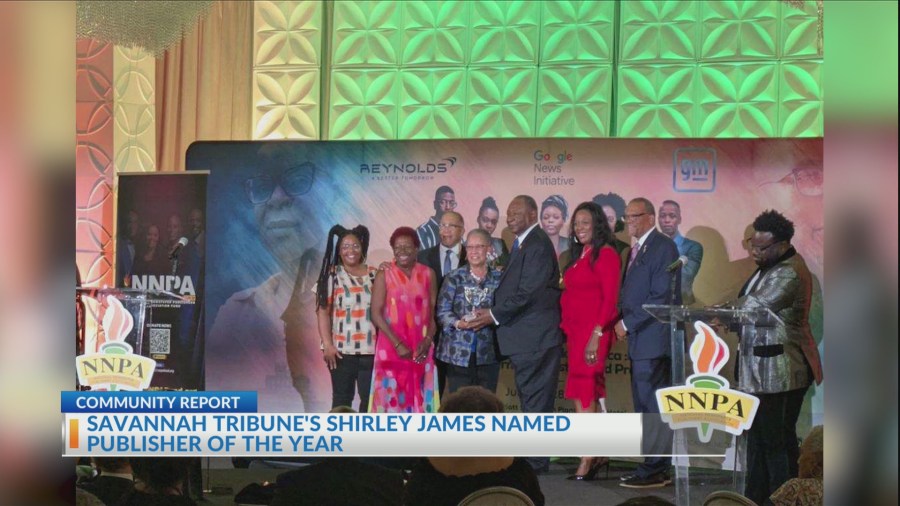An unforgettable ending marked the National Newspaper Publishers Association’s (NNPA) 198th conference in Savannah, Georgia, as Shirley B. James, owner and publisher of The Savannah Tribune, was named Publisher of the Year. The event, hosted at the JW Marriott, drew over three hundred Black publishers and journalists nationwide, celebrating both the NNPA’s legacy and The Savannah Tribune’s 150th anniversary.
The multi-day summit, held in the historic Hostess City, was a significant gathering for the Black press, emphasizing the enduring impact of Black-owned newspapers. Upon receiving the prestigious honor, James remarked,
“Savannah is proud to be the place where vision meets legacy.”
The Significance of the NNPA Conference
The NNPA conference is a cornerstone event for Black publishers, providing a platform for networking, sharing insights, and discussing the challenges and opportunities facing the industry. This year’s conference was particularly poignant, given the backdrop of The Savannah Tribune’s milestone anniversary. The Tribune, a publication with deep roots in the community, has been a steadfast voice for African Americans since its inception in 1875.
The conference highlighted the ongoing need for representation in media, with discussions focusing on the role of Black newspapers in shaping narratives and influencing public opinion. The NNPA, often referred to as the “Black Press of America,” has been instrumental in advocating for the interests of Black publishers and journalists, ensuring their stories and perspectives remain at the forefront.
Shirley B. James: A Legacy of Leadership
Shirley B. James has been at the helm of The Savannah Tribune for decades, guiding the newspaper through a rapidly changing media landscape. Her leadership has been characterized by a commitment to community engagement and journalistic integrity. Under her stewardship, the Tribune has not only survived but thrived, adapting to digital transformations while maintaining its print presence.
James’s recognition as Publisher of the Year is a testament to her dedication and the respect she commands within the industry. Her work has been pivotal in ensuring that the voices of Savannah’s Black community are heard, and her influence extends beyond the city to the national stage.
A Historical Perspective
The Savannah Tribune’s history is intertwined with the broader narrative of the Black press in America. Founded in the post-Reconstruction era, the newspaper has chronicled the struggles and triumphs of African Americans for 150 years. Its pages have documented significant events, from the Civil Rights Movement to contemporary social justice issues, providing a vital record of Black history and culture.
Historically, Black newspapers have played a crucial role in advocating for civil rights and social change. They have served as platforms for discourse and dissent, challenging mainstream narratives and offering alternative perspectives. The Tribune’s continued operation is a reminder of the resilience and importance of these publications in the fight for equality and justice.
Looking Ahead: The Future of Black Newspapers
As the media industry continues to evolve, Black newspapers face both challenges and opportunities. The digital age offers new avenues for reaching audiences, but it also presents financial and operational hurdles. The NNPA and its member publications are actively exploring strategies to sustain and grow their impact in this new environment.
Experts suggest that collaboration and innovation will be key to the survival of Black newspapers. By leveraging digital tools and forming strategic partnerships, these publications can expand their reach and influence. The NNPA conference served as a catalyst for these discussions, fostering a spirit of cooperation and shared purpose among attendees.
Shirley B. James’s recognition at the conference underscores the importance of leadership and vision in navigating these challenges. Her example serves as an inspiration for the next generation of Black publishers and journalists, who will carry forward the legacy of the Black press.
As the conference concluded, attendees left with a renewed sense of purpose and commitment to their craft. The honor bestowed upon James was a fitting tribute to her contributions and a reminder of the vital role that Black newspapers continue to play in American society.
